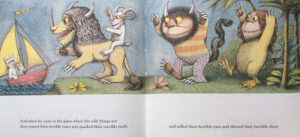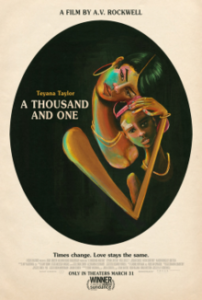So, Where Do I Stand on the Transgender Issue?
Question from JL:
“I’m having a little argument with a friend about your stance on the transgender movement and transgender people. Based on what you’ve written recently, which is never explicit, he thinks you may be transphobic. Based on my reading of the same comments, I think you may be pro-trans. Which is it?”
My Response: This is a big, interesting subject. I couldn’t possibly cover all my thoughts and feelings about it in this space, but here are some of them:
Whenever multiple ethical, political, and social considerations are involved in making decisions about complex problems, I tend to lean towards liberty. In the case of transgender rights, that means I believe adults have the right to alter their body parts. If the person intending to make the transition were a friend or family member, I’d want to believe that they had the opportunity to review the facts with someone that cares about them more than the cause. But I don’t think there should be any legal impediment to having the required medical procedures.
Having said that, I think there is, at best, a small chance that going through the transitioning process will provide lasting satisfaction. Most recently transitioned people say they are happy with their decision. But based on the data I’ve found, this might be, at least partially, confirmation bias.
As for the transitioning of children, I think that’s up to their parents. But I don’t think that parents should allow it before their children are 18. Let’s remember that most responsible parents wisely impose the “wait till you’re 18” rule on all sorts of requests – from getting a tattoo, to moving away from home, to getting a car, or joining the military.
Transgendering is a serious decision. It is also something that cannot be reversed if one decides the procedure was a mistake. For young people with genuine gender dysphoria, I am sympathetic to how frustrating it must feel to have to wait years to do something they are sure should be done immediately. But it is the nature of childhood and adolescence to want everything now. And one purpose of parenting during those years is to teach the child to delay gratification.
As for transwomen competing in women’s sports, the idea is utterly ridiculous. What’s amazing and endlessly entertaining about it is that there are tens of millions of Americans that know so little about physiology that they believe this form of misogyny should not only be allowed but encouraged. Not to worry. This particular idiocy is sure to resolve itself soon as more female athletes stand up and tell the world what it really is: ceding female sports (and eventually all areas of competition in which females compete) to men with psychological problems.
Already, some of the largest sports organizations have abandoned or are considering abandoning this indefensible social-justice trend. By this time next year, it should be one of those “What were we thinking?” conversations. If, however unlikely, that doesn’t happen, female sports will disappear as promoters and sponsors begin to realize that nobody has any interest in watching them.
I feel the same way about the support so many of America’s largest corporations have given to the transgender movement. They’ve been showing solidarity because they want good social-credit scores – scores that some major investment firms like Black Rock are using to evaluate the investment-worthiness of public companies. But now that we’ve seen what happened to Anheuser-Busch and Target when they went woke in their branding, I think that trend is dead.
Back to Gender Dysphoria
All the above might suggest to some that I am ethically or aesthetically opposed to this now blooming social trend of gender identity – that people should present themselves as the sex they are genetically and leave the question of sexual attraction outside of identity, as it was when we had just four identities: two sexes and two sexual orientations.
That would be simpler for everyone. But if someone wants to take the trouble and spend the money to go through “gender affirming” care, I’m all for it – even if the motivation is not gender dysphoria, but an irresistible desire to be special.
I am especially sympathetic to anyone that suffers from gender dysphoria. From what I’ve read, it is a genuinely difficult and disorienting psychological condition. People with gender dysphoria have every right to make any changes they want to their bodies if they feel that such changes will give them relief and even happiness.
I am also sympathetic to parents of children with gender dysphoria. If it were my child, I would do everything I could to support him/her emotionally until they were financially and emotionally independent enough to do it on their own.
But here’s the thing.
I’m willing to bet that most people that identify as trans today don’t have and never did have gender dysphoria. What they have, in my nonprofessional opinion is INS (“I’m not special”) syndrome. My personal dictionary defines this as an extreme type of narcissism coupled with a discredited political ideology that is based on the notion that the universe of personal freedom is a fixed pie – i.e., for one person to gain freedom, or status, or power, someone or many others must lose it.
My advice to anyone thinking of transitioning: Research the data. Think hard. And if you decide to do it, don’t stop halfway. Go for the complete package. Hormones. Body parts excised and body parts added. Skeletal shaping. Vocal cord surgery. The whole nine yards.
Make yourself the best transman or transwoman you can be. But if you become a transwoman, allow your biological counterparts to compete with each other. Accept, like 99.9% of the rest of the world must, that you are not going to be winning any national or international athletic competitions.








